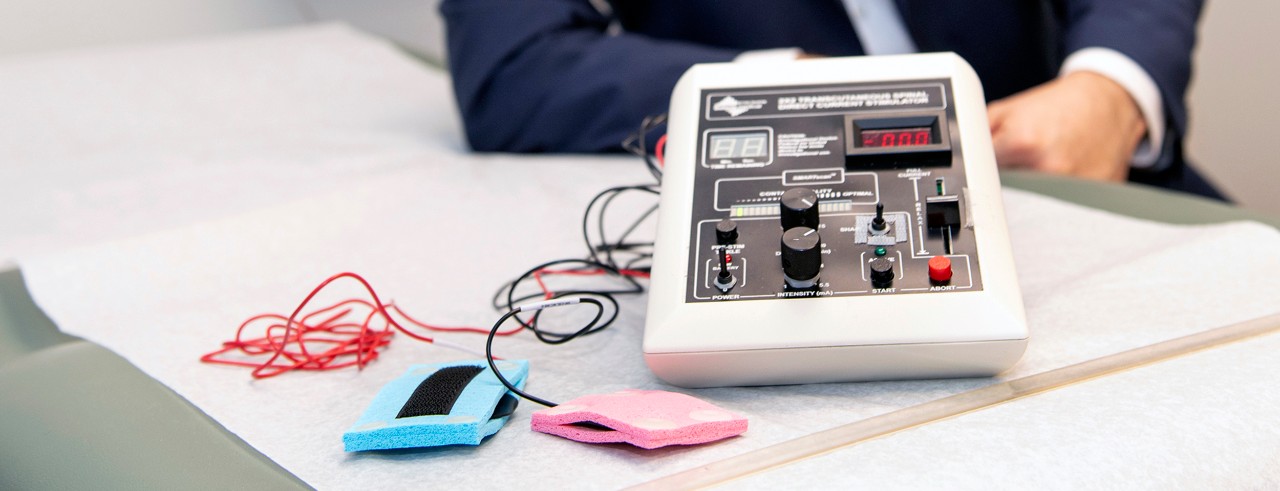
Cincinnati Edition: A new way to treat depression
UC researcher studies whether electrical stimulation of the spinal cord helps treat depression
A researcher at the University of Cincinnati is studying whether electrical stimulation of the spinal cord can be helpful in treating certain psychiatric conditions, like depression. Francisco Romo-Nava, MD, PhD, calls his research "neuroscience of the body in psychiatric disorders."

Francisco Romo-Nava, MD, PhD, a University of Cincinnati researcher, applies the electrodes to a patient. Photo/Colleen Kelley
"We think that a relatively small electrical current applied through the skin, which can barely be felt by the patient and will not hurt them, will moderate the brain-body communication neural pathways in the spinal cord and will impact certain regions of the brain," Romo-Nava, assistant professor in the Department of Psychiatry and Behavioral Neurosciences at UC, associate chief research officer for the Research Institute at the Lindner Center of HOPE and a UC Health physician scientist, says.
Listen to the full Cincinnati Edition segment from WVXU.
This news was also featured in a WVXU, 91.7-FM report.
Featured photo of device used in the study by Colleen Kelley.
Impact Lives Here
The University of Cincinnati is leading public urban universities into a new era of innovation and impact. Our faculty, staff and students are saving lives, changing outcomes and bending the future in our city's direction. Next Lives Here.
Stay up on all UC's COVID-19 stories, or take a UC virtual visit and begin picturing yourself at an institution that inspires incredible stories.
Related Stories
Could a Cincinnati bank merger create more jobs?
October 10, 2025
David Brasington, economics professor at the University of Cincinnati's Carl H. Lindner College of Business, spoke to WLWT on what the potential merger could mean for the queen city.
Highlights from StartupCincy Week 2025
October 10, 2025
StartupCincy Week 2025 didn’t just bring entrepreneurial energy to the Queen City – it showcased what’s happening every day. We’ll break down takeaways from this year’s event.
Do plastics have toxic effects on the heart?
October 10, 2025
We’ve all heard warnings about BPA — a chemical found in plastics and personal care products. Studies show that nearly 90% of Americans have detectable levels of BPA in their bodies. Now, University of Cincinnati College of Medicine research has revealed this everyday exposure is tied to changes in the heart’s electrical system.
